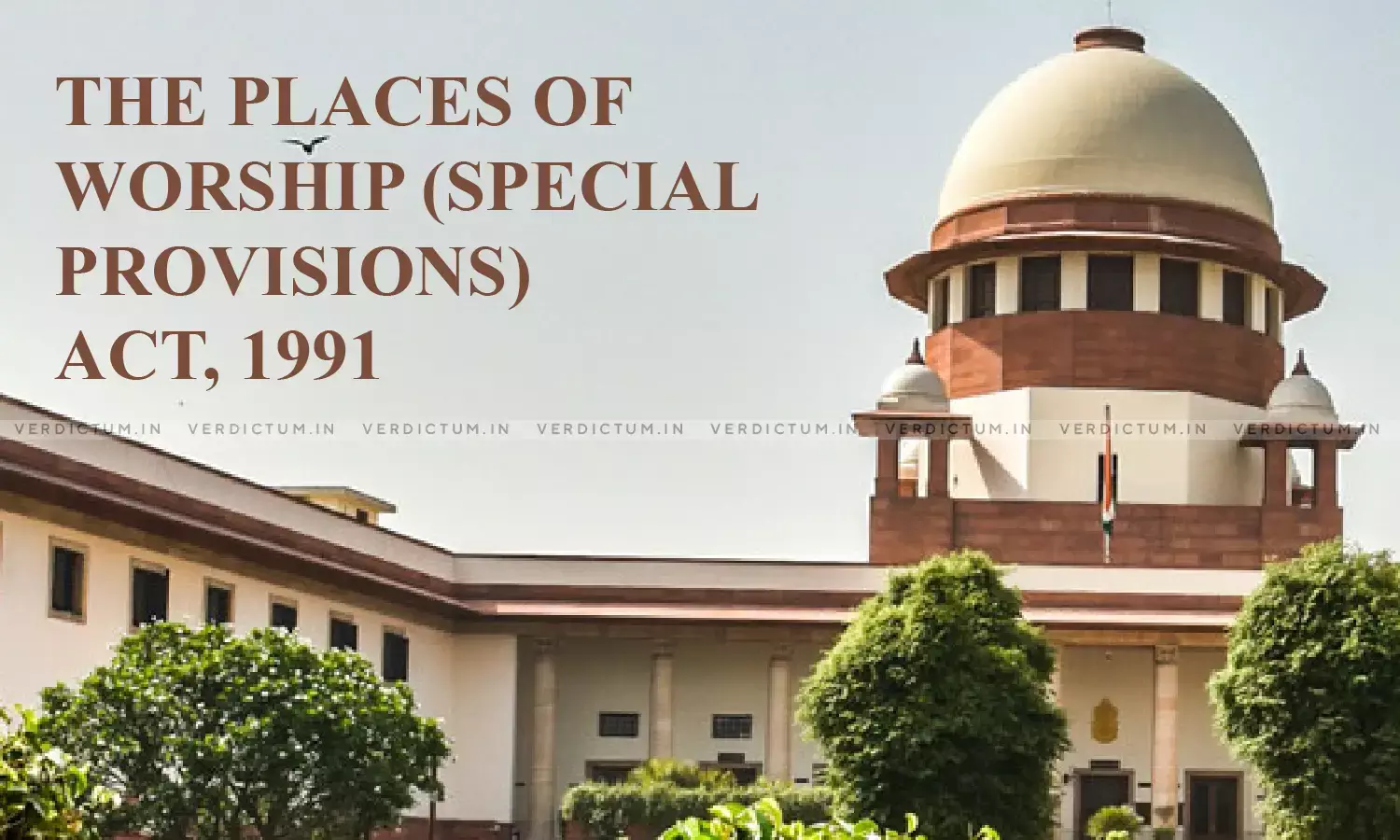Challenge To Places of Worship Act- Need Consultation At Higher Level: Solicitor General Tells Supreme Court

The Supreme Court today allowed the Union Government's request for additional time to file an affidavit in the batch of Public Interest Litigations challenging the validity of the Places of Worship Act, 1991. The Supreme Court directed that "the counter-affidavit may be filed on or before December 12 and the matters may be listed in the first week of January 2023".
A Bench of CJI Justice DY Chandrachud and Justice JB Pardiwala was informed by Solicitor General Tushar Mehta that, "(he) will need consultation with the government at higher level for filing a detailed counter" during mentioning hours in the Chief Justice's Court.
Senior Advocate Rakesh Dwivedi appeared for one of the petitioners Ashwini Kumar Upadhyay. Senior Advocate Raju Ramachandran and Advocate Vrinda Gover appeared for intervenors in the matter.
Dr. Subramanian Swamy, who is also one of the petitioners, told the Court that his petition does not challenge the 1991 Act but seeks that only two more temples (Kashi and Mathura) be added as exemptions in addition to Ayodhya in the Act. The Court further directed that counter affidavit filed by the Centre may be circulated to all parties including intervenors, a week prior to the listing.
The petition filed by Ashwini Kumar Upadhyay challenges the constitutional validity of Sections 2, 3, and 4 of the Places of Worship (Special Provisions) Act, 1991 for violating Articles 14, 15, 21, 25, 26 and 29 of the Constitution of India.
At least eight petitions are pending before the Apex Court challenging the validity of the Act. The Supreme Court then refused to entertain new petitions challenging the Act and instead permitted the Petitioners to file intervention petitions in the pending cases where notices have been issued.
A Bench of Bench comprising of the then Chief Justice U. U. Lalit, Justice S. Ravindra Bhat and Justice P. S. Narasimha had directed that the matters will be taken up by a Bench of three judges since there were observations in the Ayodhya Judgment about the statute.
Cause Title- Ashwini Kumar Upadhyay v. Union of India

